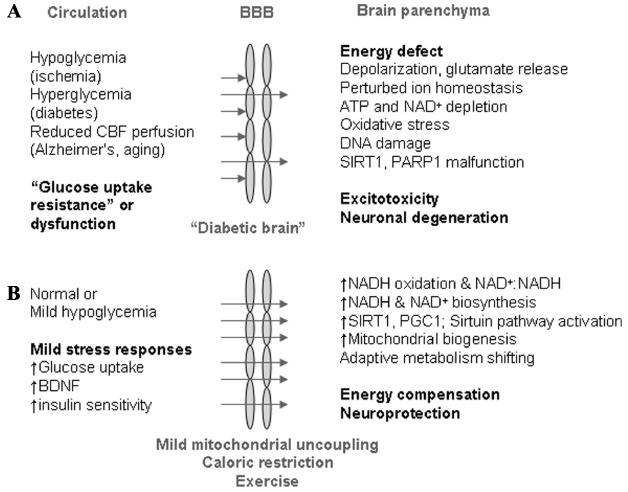Figure 5.
Possible neuroprotective mechanisms of mild mitochondrial uncoupling and caloric restriction in neurodegenerative diseases. (A) Compromised bioenergetics in stroke (ischemia), Alzheimer's disease (reduced cerebral blood flow perfusion), or hyperglycemia in diabetic conditions results in an energy defect in neurons. (B) The interventions of mild mitochondrial uncoupling and caloric restriction cause a mild metabolic stress. Through a compensatory response, brain energy metabolism is stimulated. Glucose uptake is accelerated with increased expression of the brain glucose transporter 1 (GLUT1) and BDNF in the brain. NAD(P)H oxidation in mitochondria is enhanced with increased respiration, which modulates cellular NAD+ levels and the NAD+/NADH redox state, and activates SIRT1/sirtuin–PGC1α signaling pathway.

